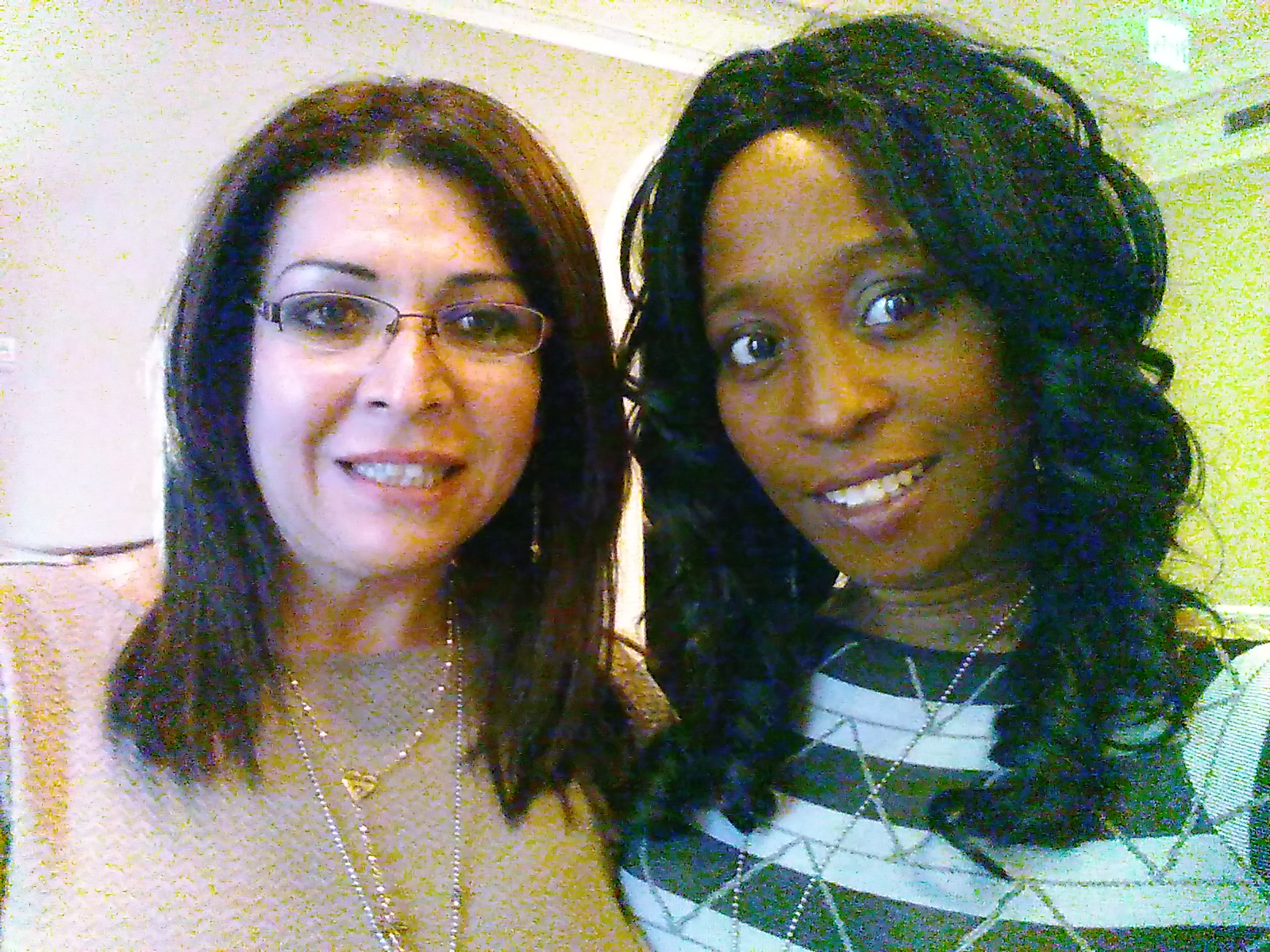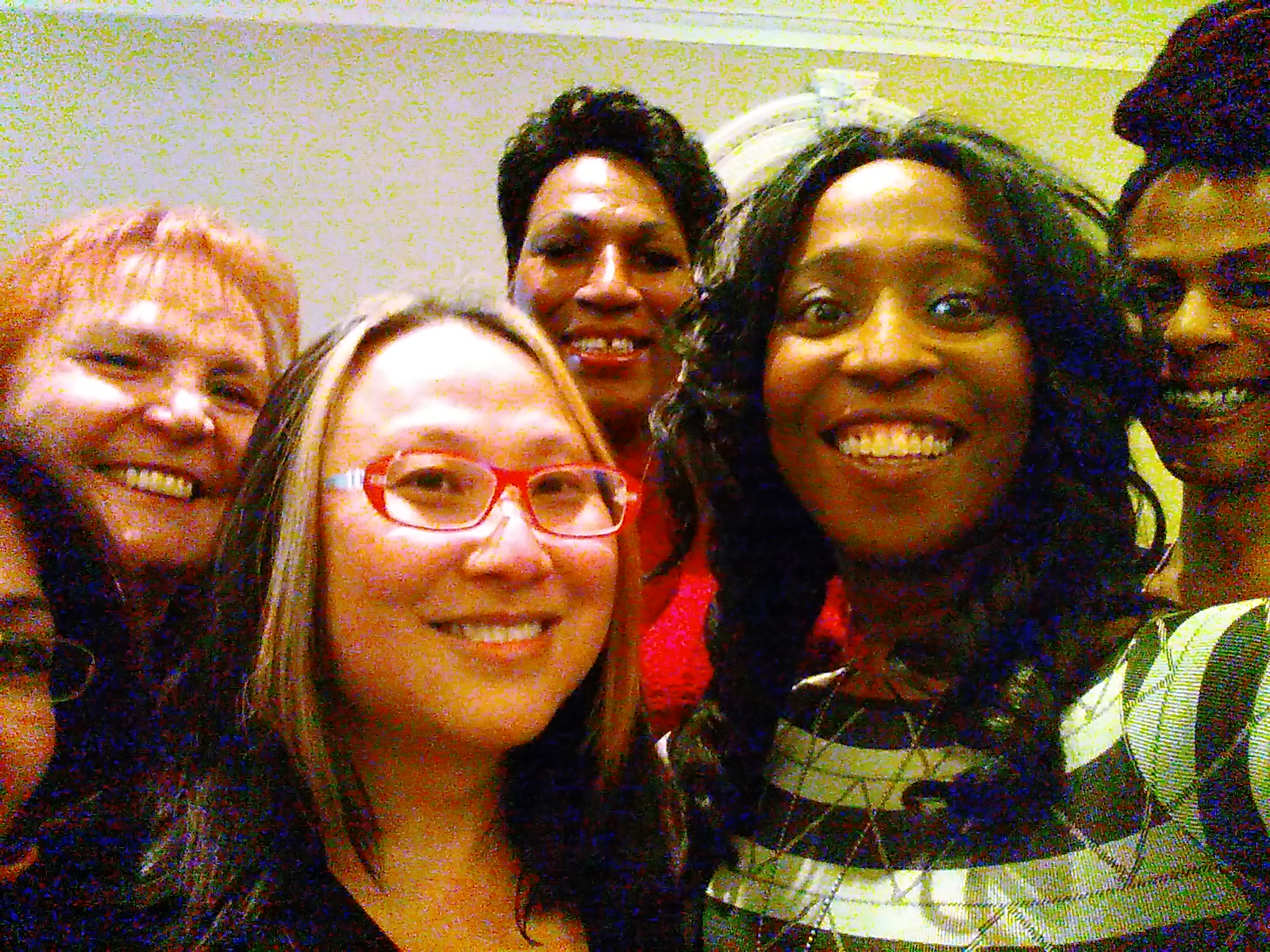
Tiommi (right) and Arianna Lint (left) at White House, Feb. 10, 2016
by Tiommi Jenae Luckett
Going to the White House was truly something I never had on my radar to do for personal reasons. However, that was years ago when I felt that way. So fast forward and I was invited to participate in a roundtable discussion with members of the Office of National AIDS Policy (ONAP), the Health Resources and Services Administration (HRSA), Centers for Disease Control (CDC) and representatives from other agencies, alongside several phenomenal trans women and trans men who are recognized as experts.
The discussion started off with a synopsis of the things these lead organizations need to improve on when servicing the trans population. We who are of trans experience are already privy to this information and we voiced our frustrations about the inconclusive and nonexistent data of the trans community living with HIV.
We had to let these agencies know that the trans community is not being counted because trans women are seen as men who have sex with men (MSM) and trans men are counted as women. That is problematic, because these ASOs and CBOs that claim to provide services for transgender people seldom do. We also had to let them know that the trans women in attendance were more than beautiful women; we are also hardworking, dedicated, fierce, intelligent and persistent advocates who demand a place at the table. In essence, nothing about us without us. We made it blatantly clear that funds intended to bridge the gap in disparities suffered by the trans community living with HIV are not being used in that manner, but more for the leadership building of Black MSMs.
I know that we got our points across and were heard. As I told Douglas Brooks, Director of ONAP, that I thought my meeting with members of HRSA last year in Arkansas was a step in rectifying the situation, yet as a trans woman living with HIV in Arkansas, whatever surveillance measures are being used are not counting me. That is a huge problem for me. What we members of Positively Trans who were in attendance actually did was to share the preliminary results of our survey of trans* and gender-non-conforming people living with HIV in the South, since the southern region is often neglected from funding opportunities.




